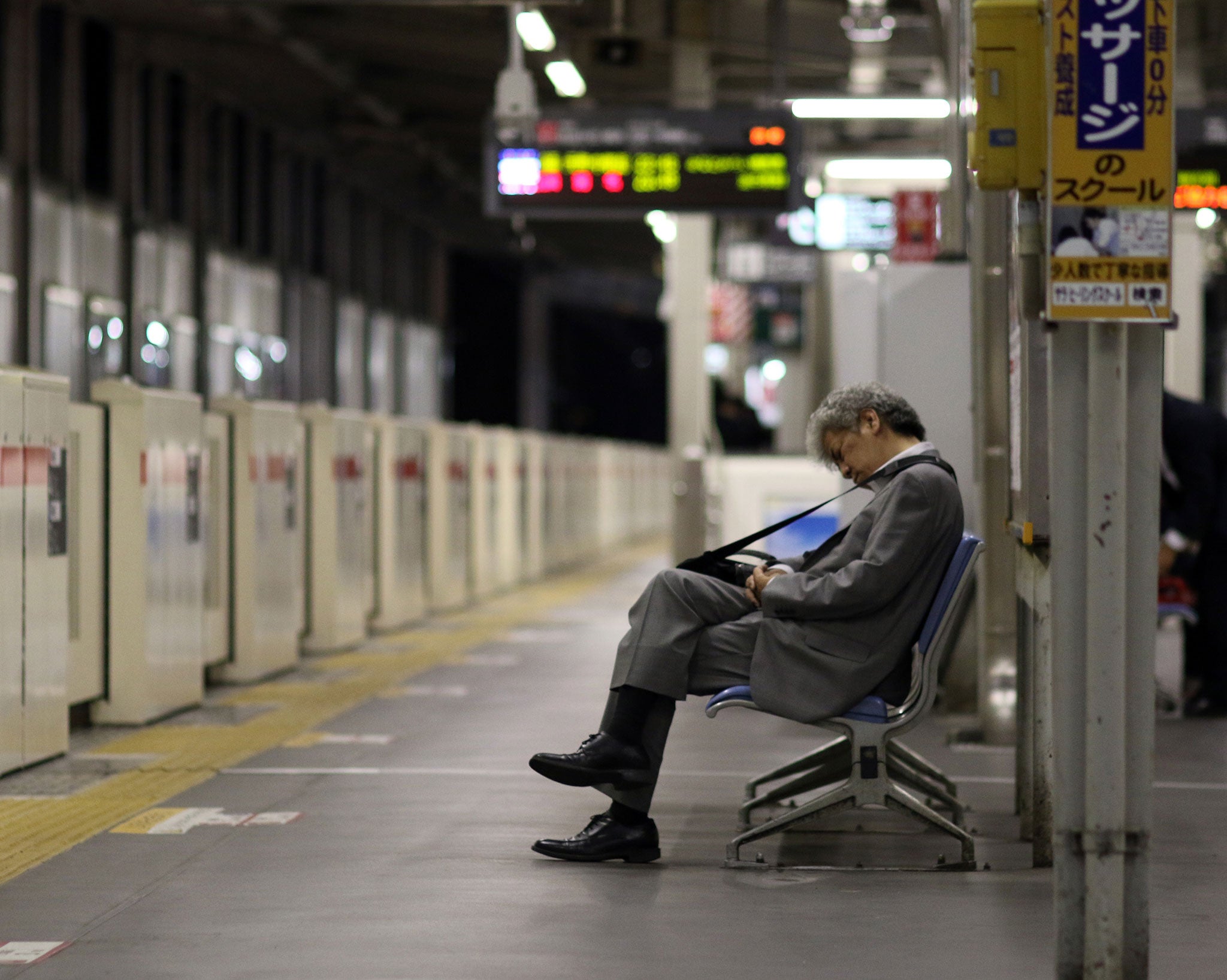32,000 people in Japan turned 100 this year and the economy can't keep up
Seniors are eating up resources at a pace younger generations can't match

Your support helps us to tell the story
From reproductive rights to climate change to Big Tech, The Independent is on the ground when the story is developing. Whether it's investigating the financials of Elon Musk's pro-Trump PAC or producing our latest documentary, 'The A Word', which shines a light on the American women fighting for reproductive rights, we know how important it is to parse out the facts from the messaging.
At such a critical moment in US history, we need reporters on the ground. Your donation allows us to keep sending journalists to speak to both sides of the story.
The Independent is trusted by Americans across the entire political spectrum. And unlike many other quality news outlets, we choose not to lock Americans out of our reporting and analysis with paywalls. We believe quality journalism should be available to everyone, paid for by those who can afford it.
Your support makes all the difference.Japan doesn't really believe in dying young.
At least, not according to conventional timelines.
New data from the country's Ministry of Health, Labor, and Welfare reveal Japan has broken its own record for most centenarians by population for the 46th straight year.
With 32,000 new 100-year-olds, there are now more than 65,000 people in Japan who've lived 100 years or more. Though it trails first-place US by roughly 10,000 centenarians, Japan's population is only a third of America's.
In other words, no country on Earth has a larger percentage of people who have reached their 100th birthday.
The feat sounds positive, especially in a country where longevity is so prized that September 19 — Respect for the Aged Day — is a national holiday in which members of the 100-plus club traditionally receive a silver sake dish. But having so many people live that long is actually becoming a burden on the nation's economy.
Seniors, though revered, are eating up resources at a pace younger generations can't match.
In 2014, for instance, awarding 59,000 centenarians the silver dish cost the country approximately $2.1 million. Compare that to 1966, when the country only had to give out a few hundred. By 1998, the number had climbed to 10,000, and today the Ministry puts the total at 65,692.
Since the country only seems to be getting older, the government has decided that 2016 will mark the first year Japan swaps out its pure-silver dish for a cheaper, silver-plated alternative. New inductees will also receive a letter congratulating them on the accomplishment.
And the fall of the sake dish is not the only challenge Japan faces in dealing with its aging population.
Nationwide, an entire generation of Japanese citizens — going on two generations, in fact — are entering retirement age. Of the 127 million people who live there, roughly 25% are over 65. (Baby Boomers, by comparison, only make up 13.5% of the total US population.) By 2060, the proportion of people 65-plus in Japan could rise to 40%.
On top of that, the generations that are supposed to replace the elderly aren't reproducing. Countries need a “replacement fertility rate” of 2.1 births per woman to keep the population from shrinking. Japan's fertility rate is 1.4 — the result of women focusing more on their careers and the long hours workers typically spend at the office.
As a result, the country's economy has been shrinking for decades.
This dangerous mixture has led to what economists call a “demographic time bomb” — a doomsday-type scenario in which Japan could actually go extinct if it doesn't encourage its young people to start having kids.
In the face of these looming economic threats, spending less on sake dishes starts to seem like a pretty smart idea.
Read more:
• This chart is easy to interpret: It says we're screwed
• How Uber became the world's most valuable startup
• These 4 things could trigger the next crisis in Europe
Read the original article on Business Insider UK. © 2016. Follow Business Insider UK on Twitter.
Join our commenting forum
Join thought-provoking conversations, follow other Independent readers and see their replies
Comments